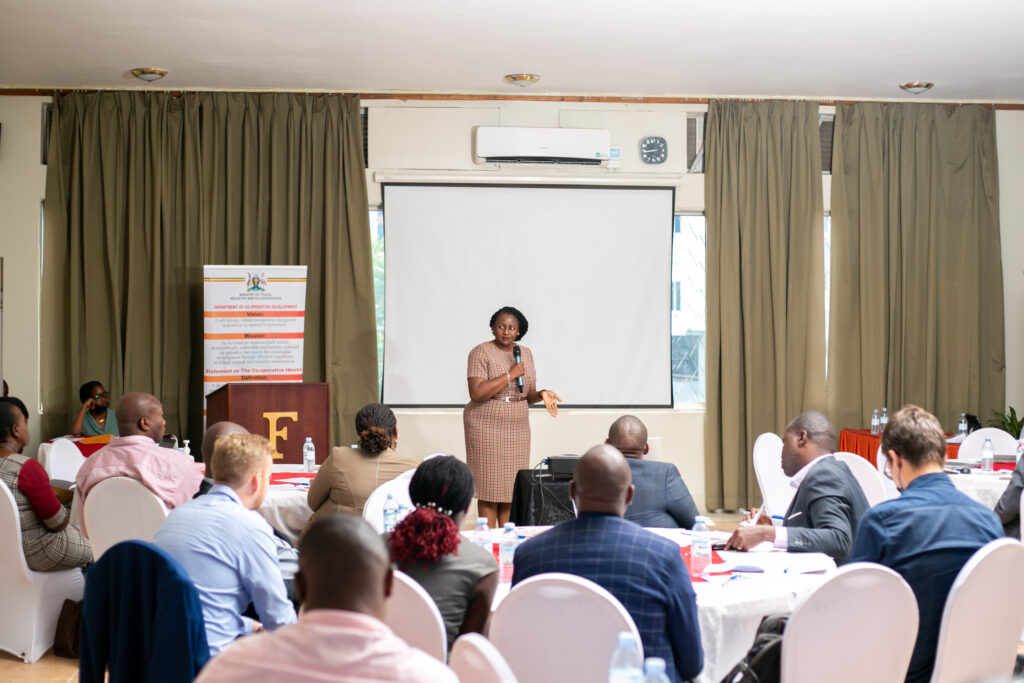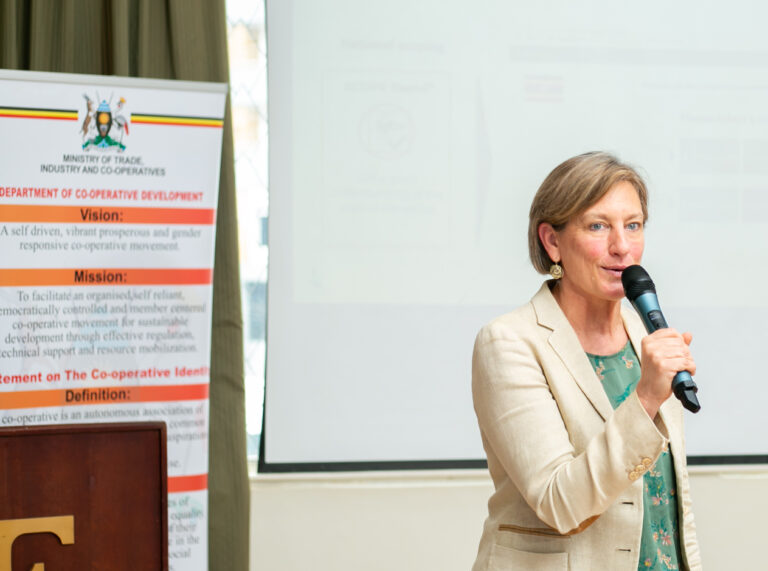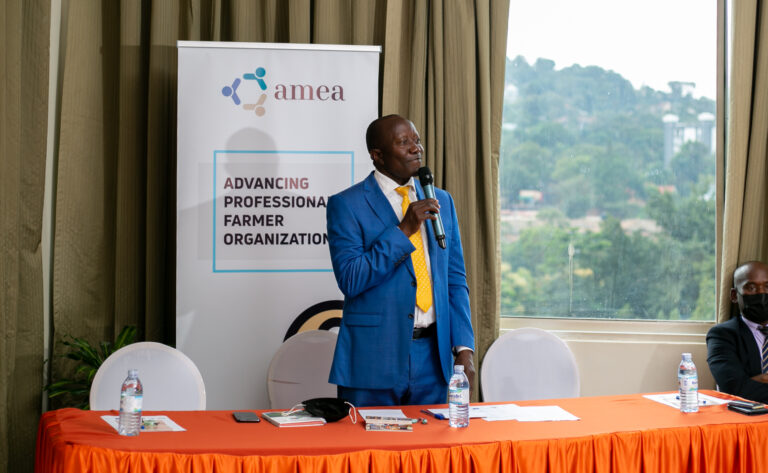Uganda cooperative database launch

Many rural, farmer-owned agribusinesses in Uganda are currently not managed professionally, which makes it difficult for these businesses to access inputs, services and finance. Additionally, organisations who work with cooperatives often deliver services in a fragmented, expensive and unsustainable way. AMEA aims to transform the way in which farmers and their organisations are supported. As part of this mission, AMEA created the Tool Improvement Facility, where AMEA members receive support to improve their current tools or innovatively adapt them to suit emerging needs in farmer organisation assessment and capacity building.
In response to these challenges and AMEA’s call for tool improvement, SCOPEinsight spearheaded the development of a Rapid Assessment Tool and a national database of cooperatives in Uganda. Together with Rikolto, the National Alliance of Agricultural Cooperatives (NAAC) and Agriterra, this initiative will drive the adoption of a cooperative database In Uganda with regular cooperative assessments, using standardised assessment tools. This will help the Ugandan Ministry of Trade and Cooperatives (MTIC) keep track of developments in cooperatives and tackle the unstructured way in which various stakeholders work with cooperatives.
AMEA aims to create a platform where various partners who work with cooperatives can converge to start collaborating and sharing lessons among themselves. This intervention makes it easier for policy makers to collect data about cooperatives on a regular basis and use this information in guiding support towards cooperatives

The development of a cooperative database in Uganda will help minimise any replication of effort, wastage of resources and conflicting information which confuses farmer organisations and their members. This initiative will also improve the MTIC’s ownership of capacity building for farmer organisations. Local government officers can be trained to deliver SCOPE assessments which in turn means cooperative weak spots can be identified and addressed with the right support mechanisms from MTIC, donors and others. Key to the success of this initiative has been the support of prominent government stakeholders, including the MTIC Permanent Secretary (Geraldine Ssali Busuulwa).

By adopting and promoting a data-driven and standardised approach to supporting agricultural cooperatives, the way in which they are supported can be streamlined. This in turn will accelerate their level of professionalism and spur development at the community and national level. Use of the database will also ease the review of the National Cooperative Policy as all assumptions made will be data evidence-based.
The SCOPE Rapid tool and the National Database are a great start for many stakeholders to work together in a more data-driven way. We hope to build on this work to expand on the database and our collaborative work in Uganda

The SCOPEinsight, Rikolto, NAAC and Agriterra consortium began piloting the Rapid Assessment and database approach to cooperative professionalisation in 2020. To date, the following has been achieved:
- Development of a SCOPE Rapid assessment tool
- Capacity development of MTIC and Local Government staff in cooperative capacity assessments
- 216 cooperatives across the country scoped, using the Rapid Assessment Tool
- In-depth assessment of 42 cooperatives (selected from the scoped cooperatives)
- National Cooperative Database of scoped cooperatives developed
- Interactive Business intelligence Platform for Consortium members who used the SCOPE Basic assessment tool


Interested in learning more about this work or joining AMEA as a local member in Uganda? Contact Harrison!
